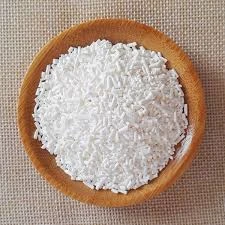
food flavour enhancer
The Role of Food Flavor Enhancers in Culinary Arts
Food flavor enhancers have become a crucial element in contemporary cooking, playing a significant role in how we experience taste and savor our meals. These additives, designed to intensify the existing flavors of food, can transform a mundane dish into an extraordinary culinary experience. In this article, we will explore the importance of flavor enhancers, their types, and their impact on both home cooking and the food industry.
Understanding Flavor Enhancers
Flavor enhancers are substances that enhance the taste of food without imparting a distinct flavor of their own. Commonly used in kitchens around the world, they help to accentuate the natural flavors of ingredients, making dishes more appealing to the palate. The most popular flavor enhancer is monosodium glutamate (MSG), a compound that has been extensively studied and often debated for its safety and effects on health. Other examples include yeast extracts, hydrolyzed vegetable proteins, and natural flavor compounds derived from fruits and spices.
Culinary Applications
In both professional and home kitchens, flavor enhancers are employed to elevate meals. In a restaurant setting, chefs use these compounds to ensure the consistency and appeal of their dishes, allowing them to create flavors that are rich, complex, and enjoyable. For example, a chef might use MSG in a broth to reinforce umami, the savory taste that makes certain foods like mushrooms and aged cheeses so irresistibly delicious.
In home cooking, flavor enhancers allow amateur chefs to replicate the tastes found in gourmet cuisine. Sprinkling a pinch of salt or a dash of seasoning can dramatically change how a dish is perceived. Furthermore, flavor enhancers can help to mask undesirable flavors, improving the overall balance of a dish. A well-placed scoop of yeast extract can elevate the flavor profile of soups and stews, while a carefully measured amount of soy sauce can add depth to stir-fries.
The Science Behind Flavor Enhancement
food flavour enhancer

The science of flavor enhancement revolves around the interaction of various compounds and the human palate. Taste perception is a complex process involving taste buds that respond to five basic tastes sweet, salty, sour, bitter, and umami. Flavor enhancers can stimulate these receptors more effectively, making food more enjoyable. For example, umami compounds, such as glutamate, can stimulate receptors that signal deliciousness, making dishes seem richer and more flavorful.
Research has indicated that using flavor enhancers may also reduce the amount of salt and sugar needed in recipes. This can contribute to healthier eating habits, especially in processed foods where excessive levels of salt can lead to health concerns. By using enhancers, food manufacturers can create tasty products that are lower in sodium while still appealing to consumers.
Health Considerations and Misconceptions
The use of flavor enhancers, particularly MSG, has been surrounded by controversy. Some individuals report sensitivity to MSG, resulting in symptoms often referred to as Chinese restaurant syndrome, such as headaches and flushing. However, extensive scientific studies have not conclusively established a direct link between MSG consumption and adverse health effects for the general population. As with many food ingredients, moderation is key, and most health organizations consider MSG safe for consumption.
Moreover, there is a growing trend toward natural flavor enhancers, such as herbs, spices, and other plant-based ingredients, as consumers seek cleaner-label products. These natural alternatives often provide flavor enhancement without the use of synthetic additives, appealing to a health-conscious audience.
Conclusion
Food flavor enhancers play an indispensable role in enhancing the culinary experience, both in home kitchens and professional settings. They provide a means to intensify flavors, improve taste perception, and even simplify cooking without compromising on flavor. As our understanding of taste and food science evolves, flavor enhancers will continue to be an integral part of the culinary world, allowing chefs and home cooks alike to create delightful and satisfying meals. By using these tools thoughtfully and responsibly, we can heighten our appreciation for the beautiful art of cooking.
-
Buy High-Quality Trichloroisocyanuric Acid for Sale | TCCA 90% SupplierNewsAug.30,2025
-
Pure Sodium Dichloroisocyanurate Dihydrate | Powerful DisinfectantNewsAug.29,2025
-
Industrial Chemicals: Quality & Purity for Every IndustryNewsAug.28,2025
-
Nitrile Rubber Honoring Strict Production StandardsNewsAug.22,2025
-
Aspartame Ingredients Honoring Food Safety ValuesNewsAug.22,2025
-
Fertilizer for Balanced Plant NutritionNewsAug.22,2025
-
Cyanide Gold Processing with High Purity AdditivesNewsAug.22,2025
Hebei Tenger Chemical Technology Co., Ltd. focuses on the chemical industry and is committed to the export service of chemical raw materials.
-

view more DiethanolisopropanolamineIn the ever-growing field of chemical solutions, diethanolisopropanolamine (DEIPA) stands out as a versatile and important compound. Due to its unique chemical structure and properties, DEIPA is of interest to various industries including construction, personal care, and agriculture. -

view more TriisopropanolamineTriisopropanolamine (TIPA) alkanol amine substance, is a kind of alcohol amine compound with amino and alcohol hydroxyl, and because of its molecules contains both amino and hydroxyl. -

view more Tetramethyl Thiuram DisulfideTetramethyl thiuram disulfide, also known as TMTD, is a white to light-yellow powder with a distinct sulfur-like odor. It is soluble in organic solvents such as benzene, acetone, and ethyl acetate, making it highly versatile for use in different formulations. TMTD is known for its excellent vulcanization acceleration properties, which makes it a key ingredient in the production of rubber products. Additionally, it acts as an effective fungicide and bactericide, making it valuable in agricultural applications. Its high purity and stability ensure consistent performance, making it a preferred choice for manufacturers across various industries.





